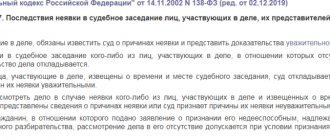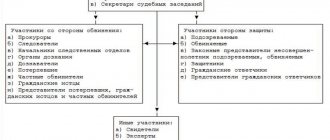- If you are accused under Article 159 of the Criminal Code, do you need a lawyer?
- Possible consequences if accused of fraud?
- What can a lawyer do?
- Cost of a lawyer in cases of fraud
- Frequently Asked Questions When Alleging Fraud
Criminal cases of fraud are initiated regularly and in large numbers. Thus, according to official data from the Ministry of Internal Affairs, during the period from January to September 2022, 227,404 cases of fraud were recorded. Of all types of theft, only theft is the most common. For comparison: during the same period, law enforcement agencies registered 4,775 cases of theft in the form of extortion and 10,189 cases of theft in the form of misappropriation or embezzlement.
Important point
Timely seeking legal assistance from a lawyer specializing in defense in criminal cases of fraud often helps to avoid serious negative consequences.
Get a professional involved?
Not all criminal cases initiated for fraud reach the court. These statistics may indicate the fabricated nature of some cases. Thus, the initiation of cases of fraud is often initiated in order to use the means of criminal proceedings in civil cases or to exert illegal pressure on entrepreneurs. In addition, law enforcement officers often initiate cases of fraud in the presence of deception in the absence of theft, which also inevitably leads to the termination of cases. Meanwhile, even if the entrepreneur is not convicted, criminal prosecution under this article can cause a very serious blow to the business and reputation, as well as cause the collapse of the company.
One of the main areas of our work is the protection of Principals suspected/accused of committing crimes under:
- Art. 159 of the Criminal Code of the Russian Federation (“Fraud”);
- Article 159.1 of the Criminal Code of the Russian Federation (“Fraud in the field of lending”);
- Art. 159.2 of the Criminal Code of the Russian Federation (“Fraud in receiving payments”);
- Article 159.3 of the Criminal Code of the Russian Federation (“Fraud using electronic means of payment”);
- Article 159.5 of the Criminal Code of the Russian Federation (“Fraud in the insurance sector”);
- Article 159.6 of the Criminal Code of the Russian Federation (“Fraud in the field of computer information”).
Preventive measure
If a citizen is suspected or accused of a crime specified in Art. 159, part 3, the investigator/interrogator can choose any option from Art. 98 Code of Criminal Procedure. As a rule, in relation to such persons a measure is taken in the form of:
- Signs not to leave.
- Arrest (domestic).
- Collateral.
- Detention.
- Personal guarantee.
The decision to take a citizen into custody, apply a measure in the form of bail or house arrest is made exclusively in court. Taking a subscription or personal guarantee is carried out during preliminary work by authorized persons (inquirer/investigator).
It is important to understand!
Fraud lawyers are criminal lawyers who not only know the nuances of applying criminal and criminal procedural legislation, but also know the basics of civil and financial law, and understand the peculiarities of the economic activities of commercial enterprises.
Generalist lawyers, as a rule, do not have the necessary experience in defending entrepreneurs in criminal cases, so they cannot always fully provide qualified legal assistance.
Lawyers at Trial Advocate Law Firm have many years of experience defending managers of commercial enterprises and business owners accused of committing fraud. Lawyers with experience working in investigative agencies stand guard over your interests; therefore, we are well aware of all the features of conducting a preliminary investigation into fraudulent charges. Our lawyers use this knowledge to be “one step ahead” of the prosecution and do the maximum for your defense.
You have been accused under Article 159 of the Criminal Code of the Russian Federation - can a lawyer help?
Formally, a firm's unintentional failure to fulfill its contractual obligations is not a crime. For example, companies often do not pay for goods or services due to an unstable financial situation: the counterparty in this case can repay the debt in court or out of court. However, some partners may use this situation to eliminate a competitor or take over a business by accusing the management of the debtor company of fraud.
In turn, fraud refers to the theft of someone else’s property or the acquisition of rights to someone else’s property through deception or abuse of trust. In the absence of a selfish goal, there is no need to talk about fraud.
So is it necessary to contact a lawyer if you are absolutely sure of your innocence? Definitely yes. Relying on a fair trial and one’s own strength in the absence of qualified assistance from a criminal lawyer can lead to serious consequences.
Possible consequences if accused of fraud
You may be sent to a pre-trial detention center
Formally, it is prohibited to place entrepreneurs on fraudulent charges in pre-trial detention centers. In fact, the courts willingly satisfy the corresponding requests of investigators. To end up in a pre-trial detention center means to lose your freedom and the opportunity to run your own enterprise. There are cases when businessmen spent more than a year in pre-trial detention centers.
A lawyer under Article 159 of the Criminal Code of the Russian Federation not only forms a defense position and collects evidence, trying to prove the innocence of the principal, but also, immediately after entering into the case, tries to use legal means to solve the primary task - to exclude the conclusion of the principal into custody or to do everything possible to elect or changing the preventive measure to a softer one, not related to isolation from society.
Data storage media and documents belonging to you will be confiscated during the search
The law obliges law enforcement officers to make copies, but leaves them with a lot of “loopholes” that allow them to confiscate original documents and media. As a result, the company’s activities will be completely paralyzed. In addition, confidential information may fall into the hands of competitors.
A criminal fraud lawyer will promptly arrive at your office, apartment, or other place where the search is being conducted, and will control the search process in order to prevent violations of the law and the rights of the principal. If necessary, the actions of law enforcement officers will be appealed.
Your employees will be called in for questioning
Untrained workers are very easy to confuse and frighten; accordingly, they can, unnoticed, tell investigators information that is compromising you. Particularly valuable employees may even quit and go to competitors.
A lawyer under Article 159 of the Criminal Code of the Russian Federation will prepare employees for interrogation, tell them how to behave and what to say to the investigator. The lawyer will also take part in the interrogation and help eliminate pressure that may be applied during the interrogation. Any attempts to violate your rights will be immediately suppressed.
You will lose your business reputation and lose your partners
Criminal prosecution against the head of a company is a signal to other companies to refuse to cooperate with you. Nobody wants to work with “problematic” counterparties.
Fraud lawyers will make every effort to bring the criminal case/prosecution to an end as early as possible. We will develop an effective defense strategy and collect the necessary evidence base. Your partners will have no reason to terminate cooperation.
You can get up to 10 years in prison with a fine of up to 1 million rubles
Despite the fact that the prosecutor's office approves less than half of the indictments in fraudulent cases, the risk of receiving a guilty verdict is still there, and not a small one. The real deadline puts an end to business.
If a sentence cannot be avoided, the lawyer, according to Article 159 of the Criminal Code of the Russian Federation, will use available legal means to mitigate the punishment. Over the past 10 years, judicial practice in imposing penalties under Art. 159 of the Criminal Code of the Russian Federation has undergone fundamental changes. If in the early 2000s more than half of the sentences in these categories of cases were imposed with a punishment not related to deprivation of liberty, now in the vast majority of cases the courts impose punishment under Part 3 and Part 4 of Art. 159 of the Criminal Code of the Russian Federation in the form of real deprivation of liberty. Even if guilty and a pre-trial agreement on cooperation is concluded, the courts impose punishment in the form of real imprisonment for a period of 4 to 6 years. Some exceptions can be observed in the practice of sentencing in the Krasnodar Territory and in the Republic of Crimea, where suspended sentences under Part 4 of Art. 159 of the Criminal Code of the Russian Federation.
Grounds for liability
The subject of the act specified in Art. 159, part 3 of the Criminal Code, specific. According to general principles, sane individuals over the age of 16 are held accountable. As for the part under consideration, the subject may be a person who holds a certain post. Large size is another sign that makes it possible to apply Art. 159, part 3. The commentary to the norm indicates that the amount of damage in value (monetary) terms should not be more than a million rubles, but not less than 250 thousand. If the amount of harm falls outside the specified framework, other parts of the article under consideration are used.
What impact can the participation of a lawyer have on charges under Article 159 of the Criminal Code?
Based on the results of legal assistance in cases under Article 159 of the Criminal Code of the Russian Federation, the following results are possible:
- termination of criminal proceedings/prosecution;
- reclassification of the charge to an article providing for a more lenient punishment;
- application of the most lenient possible punishment;
- application of the main punishment without additional sanction;
- exemption from criminal liability due to the expiration of the statute of limitations;
- deferment of punishment and release from punishment on other grounds;
- an acquittal followed by rehabilitation.
The specific result will depend entirely, firstly, on the factual circumstances of the case, and secondly, on how quickly the suspect/accused seeks help from a fraud lawyer. The best outcome would be to have the criminal case/prosecution terminated before the case goes to trial.
Cost of a lawyer in cases of fraud
| Name of service | Price |
At the pre-investigation stage | |
| Consultation | from 5,000 rub. up to 10,000 rub. |
| Filing a statement about committing a crime | from 10,000 rub. |
| Legal assistance at the verification stage from | from 60,000 rub. |
| Participation in giving an explanation (survey) | from 25,000 rub. |
At the pre-investigation stage | |
| Protection at the investigation stage | from 250,000 rubles (or from 75,000 rubles per month) |
| Defense at the inquiry stage | from 150,000 rubles (or from 59,000 rubles per month) |
| Representing the interests of the victim | from 120,000 rubles (or from 59,000 rubles per month) |
At the stage of judicial consideration of a criminal case for fraud | |
| Defense of the defendant | from 150,000 rub. |
| Representing the interests of the victim | from 100,000 rub. |
Defense against fraud charges is our specialty!
If you, your friend or relative are suspected or accused of fraud, or a pre-investigation check is being carried out against you for fraud, we advise you to immediately contact a lawyer at Trial Lawyer, and you will be provided with a specialist who has extensive experience in defending this category of cases.
Our work standards that we are proud of:
- lawyers are ready to visit the Principal 24/7, since urgent legal assistance in cases of fraud may be required, including on weekends and holidays;
- our lawyers have many years of successful experience in defending business representatives suspected/accused of fraud;
- we are ready to intervene in a fraud case at any stage, even in difficult situations;
- possibility of monthly payment for a lawyer’s services;
- we provide complete anonymity and confidentiality;
- the long-term impeccable reputation of our lawyers, for which we vouch.
Call at any time - a fraud lawyer is ready to provide timely assistance!
Case trial
Materials collected in relation to persons who committed acts under Part 1, with an indictment, are sent according to the jurisdiction of the first instance to the magistrate. Cases of crimes, which are indicated in parts three, four and two of the article under consideration, are dealt with by district (regional) authorized bodies. During the meeting, all materials and evidence collected at the stage of preliminary investigative work are subject to direct study. As an exception, the legislation allows cases in which a court decision is made in a special procedure for criminal proceedings. The decision on further procedural actions against the accused must be based on the evidence that was studied during the hearing. During the trial, the judge hears the testimony of the defendants, victims, and witnesses. Experts also give testimony during the meeting. The judge reads out protocols and other documents and performs other actions aimed at examining the materials provided.
FAQ
Who can be held accountable under Part 5 of Article 159 of the Criminal Code of the Russian Federation?
— Criminal liability under Parts 5-7 of Article 159 of the Criminal Code of the Russian Federation is subject to sane persons who have reached the age of 16. An individual entrepreneur, the general director of a company, a chief accountant, as well as other entities involved in business can be put on trial, provided that the agreements of which the citizen is accused of deliberate non-fulfillment are concluded between commercial organizations or individual entrepreneurs.
What are the penalties for fraud?
— Article 159 of the Criminal Code of the Russian Federation provides for the following main penalties:
- a fine of up to 500 thousand rubles;
- up to 480 hours of compulsory work;
- up to 2 years of correctional labor;
- up to 2 years of restriction of freedom;
- up to 5 years of forced labor;
- up to 4 months of arrest;
- up to 10 years in prison.
The court may also impose additional penalties in the form of a fine and restriction of freedom.
The specific punishment is determined by the court when passing a sentence based on the circumstances of the case, the personality of the defendant, his behavior after the crime, in particular, compensation for damage, admission of guilt and repentance. When assigning punishment, it is important to take into account the position of the victim regarding the need to punish the perpetrator or forgive him, and the severity of the desired punishment.
According to Part 4 of Art. 159 of the Criminal Code of the Russian Federation, the law provides for an unalternative punishment in the form of imprisonment for up to 10 years with or without a fine.
Is it necessary to hire a fraud lawyer?
— The suspect/accused may benefit from the assistance of a public defender. In cases provided for by law, the participation of a defense attorney is mandatory.
Do I need to compensate for damage caused by fraudulent activities?
— Yes, if the court finds the defendant guilty of the crime and satisfies the civil claim brought by the victim, this person will have to compensate the victim for the damage caused. Please note that paying a fine does not relieve you of this obligation. In the case where the accused admits his guilt in committing a crime, the damage should be compensated before sentencing, as this may affect the assigned punishment, in addition, only with full or partial repayment of the damage is conditional early release from punishment possible.
At what amount of damage is it possible to bring criminal liability for intentional failure to fulfill contractual obligations in the field of business activity (Part 5 of Article 159 of the Criminal Code of the Russian Federation)?
— A person may be brought to criminal liability under Part 5 of Article 159 of the Criminal Code of the Russian Federation if the amount of damage exceeds 10 thousand rubles.
At what amount of stolen funds does liability begin under Art. 159 of the Criminal Code of the Russian Federation?
— Criminal liability under Art. 159 of the Criminal Code of the Russian Federation begins with 2,500 rubles. If the amount stolen is less than 2,500 rubles, then the person may be prosecuted under Art. 158.1 of the Criminal Code of the Russian Federation, subject to bringing him to administrative responsibility for petty theft.
Who investigates criminal cases of fraud?
— Criminal cases of fraud belong to the so-called alternative jurisdiction and can be investigated by an investigator of the body that revealed the crime. In most cases, criminal cases under Art. 159 of the Criminal Code of the Russian Federation are investigated by investigators of internal affairs bodies, but often such cases are investigated by investigators of the Investigative Committee of Russia and the FSB of the Russian Federation.
Is it possible to terminate a criminal case for fraud due to the reconciliation of the parties?
— Termination in connection with reconciliation with the victim is allowed only in criminal cases initiated under Part 1 and Part 2 of Art. 159 of the Criminal Code of the Russian Federation, Part 5 of Art. 159 of the Criminal Code of the Russian Federation, also under Part. 1 and 2 tbsp. 159.1-159.6 of the Criminal Code of the Russian Federation. The crime must be completely new, that is, the accused must not have a criminal record for a previously committed crime, otherwise release from criminal liability in connection with the reconciliation of the parties is not allowed.
Should any deception that results in material damage to the victim be classified as fraud?
- Of course no. Fraud is, first of all, theft; it has all the signs of theft indicated in the note to Art. 158 of the Criminal Code of the Russian Federation, including gratuitousness of seizure, illegality and mercenary motive. If there are no signs of theft in the act, then there is no fraud, even if fraud as such took place. Deception or breach of trust is only a method of committing theft, characteristic of fraud. But in any case, first of all, it is necessary to establish whether there was a theft, and only if it exists can one judge in what form the theft was committed.
Confiscation of property
According to the provision of norm 104.1 of the code, this procedure does not provide for the seizure in favor of the state, in accordance with the verdict, of money, material assets, property that were acquired by the perpetrator as a result of a criminal act in the form of fraud. This right is established by Article 1064 of the Civil Code. According to its provisions, the harm caused by the subject to the victim must be fully compensated. The culprit shall compensate for the damage accordingly. The court, upon the application of the prosecutor, the victim, the plaintiff (civil), or their representatives, may adopt a decision on the use of measures aimed at ensuring compensation for damage resulting from the crime. This right is granted by Art. 230 Code of Criminal Procedure. The executors of this judicial act are FSSP employees. The decree, therefore, can seize any property owned by the person guilty of unlawful acts.




